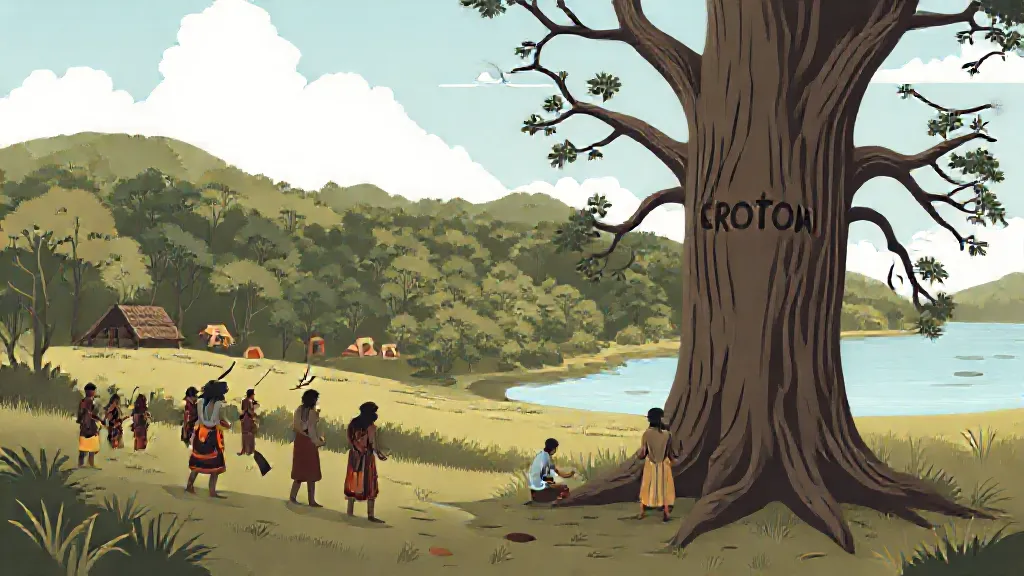The story of the first American colony, established at Roanoke Island in 1585, remains one of the most enduring mysteries in American history. This colony, sponsored by Sir Walter Raleigh, aimed to establish a foothold for England in the New World. However, it ultimately failed, leading to the disappearance of its inhabitants and leaving behind a legacy of intrigue and speculation.
Understanding the reasons behind this failure provides valuable insights into early colonial endeavors and the complexities of survival in an unfamiliar environment.
The Context of Roanoke's Establishment
The Roanoke Colony was part of England's broader strategy to expand its influence in the Americas during the late 16th century. Following Spain's successful colonization of parts of South America and the Caribbean, England sought to establish its presence.
Raleigh's expedition was motivated by the potential for economic gain, territorial expansion, and the spread of Christianity. The initial group of settlers faced significant challenges from the onset, including inadequate supplies, hostile relations with Indigenous peoples, and the harsh realities of life in a new land.
The Initial Settlement and Its Challenges
Upon arrival, the settlers found themselves ill-prepared for the realities of life in the New World.
The location chosen for the settlement, while strategically significant, was not ideal for agriculture or resource extraction. The settlers struggled with food shortages, exacerbated by drought and the lack of farming experience among many of them. Additionally, tensions with local tribes, particularly the Croatan, created an atmosphere of mistrust and hostility, further complicating their efforts to establish a stable community.
The Mysterious Disappearance of the Colony
The most perplexing aspect of the Roanoke Colony is the mysterious disappearance of its inhabitants. In 1587, Governor John White returned to England for supplies, leaving behind a group of approximately 115 settlers. When he returned in 1590, he found the settlement abandoned, with no trace of the colonists except for the word "Croatoan" carved into a tree.
This enigmatic message has led to countless theories, including assimilation with local tribes, death from starvation or disease, or even relocation to another area. The lack of concrete evidence has only fueled speculation and intrigue around this historical event.
Factors Contributing to the Failure
Several factors contributed to the failure of the Roanoke Colony.
The settlers faced a combination of environmental challenges, including inadequate food supplies and harsh weather conditions. Additionally, the lack of support from England, especially during times of crisis, hindered their chances of survival. The absence of a sustainable economic model, such as trade or agriculture, made it difficult for the colony to thrive.
Furthermore, the settlers' inability to forge lasting alliances with Indigenous groups limited their access to vital resources and knowledge about the land.
Lessons Learned from Roanoke
The failure of the Roanoke Colony serves as a cautionary tale for future colonial endeavors. It highlights the importance of thorough planning, understanding local conditions, and fostering relationships with Indigenous peoples.
Subsequent colonies, such as Jamestown in 1607, learned from the mistakes made at Roanoke, emphasizing the need for sustainable agriculture and trade relations. The lessons of Roanoke became foundational for later successful settlements, shaping the trajectory of American colonial history.
The Legacy of Roanoke in American History
Despite its failure, the Roanoke Colony holds a significant place in American history.
It symbolizes the challenges faced by early settlers and the complexities of colonization. The mystery surrounding its disappearance has inspired numerous works of literature, film, and scholarly research, contributing to the mythos of the "Lost Colony." Roanoke serves as a reminder of the risks and uncertainties inherent in exploration and settlement, echoing the broader themes of resilience and adaptation that characterize American history.
Further Exploration of Roanoke's History
For those interested in delving deeper into the history of Roanoke, numerous resources are available. Books such as "The Lost Colony: The Story of the Roanoke Island Settlement" by Jean Fritz provide engaging narratives for younger audiences, while academic works like "Roanoke: Solving the Mystery of the Lost Colony" by Lee Miller offer in-depth analyses for more serious historians. Documentaries and museum exhibits also explore the significance of Roanoke, ensuring that its story continues to captivate and educate future generations.
Conclusion: The Enduring Mystery of Roanoke
In conclusion, the failure of the Roanoke Colony encapsulates the trials and tribulations of early American colonization. Its legacy endures as a subject of fascination and inquiry, inviting us to reflect on the complexities of human endeavor in the face of adversity. The lessons learned from Roanoke remain relevant today, reminding us of the importance of preparation, adaptability, and understanding in any venture, especially those that venture into the unknown.
